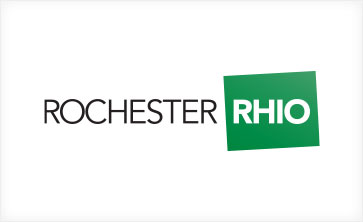
A new program that provides immediate evaluations and treatment for people with substance abuse disorders in the Rochester, NY area has saved lives with the benefit of secure access to patient medical records. A patient at Open Access, a clinic that opened in November 2017 to serve Monroe County and the surrounding areas, received critical treatment when authorized personnel accessed the patient’s medical history through Rochester RHIO, a community health information exchange and one of the eight Qualified Entities that comprise the SHIN-NY.
In a direct response to the growing opioid epidemic, Open Access is a first-of-its-kind clinic that provides 24/7 walk-in and same-day evaluations and immediate referral to the appropriate level of treatment for people with chemical dependency and substance use disorders. One of the first patients to receive care at Open Access was evaluated and determined to need in-patient detoxification. An available detox bed was located, but required a recent EKG and blood tests prior to admission. The patient’s insurance had lapsed and immediate testing wasn’t an option.
The Open Access staff realized the patient had a complex medical history. With the patient’s consent, the staff logged into Rochester RHIO’s clinical query portal and was able to view the patient’s most recent test results. This information made it possible for the patient to meet the detox program requirements and gain access to the care that was critically needed.
“Our mantra is ‘Treatment delayed is treatment denied,’” said Carl Hatch-Feir, President of the RecoveryNet Collaborative that runs Open Access. He is also President and CEO of Delphi Drug and Alcohol Council. “Because of the RHIO, we were able to affect immediate hospitalization for someone where, in the past, it would’ve taken three to five days to get admission approved. For someone experiencing opioid addiction, three to five days can make the difference between life and death.”
Through Rochester RHIO, medical records follow a patient where ever he or she goes, resulting in better care, fewer repeated tests, a reduced risk of mistakes and more informed—and in this case lifesaving—care during office visits and emergencies. Rochester RHIO is currently planning for the exchange of Part 2 data within Rochester and the rest of NYS which will comply with federal SUD data sharing requirements.
